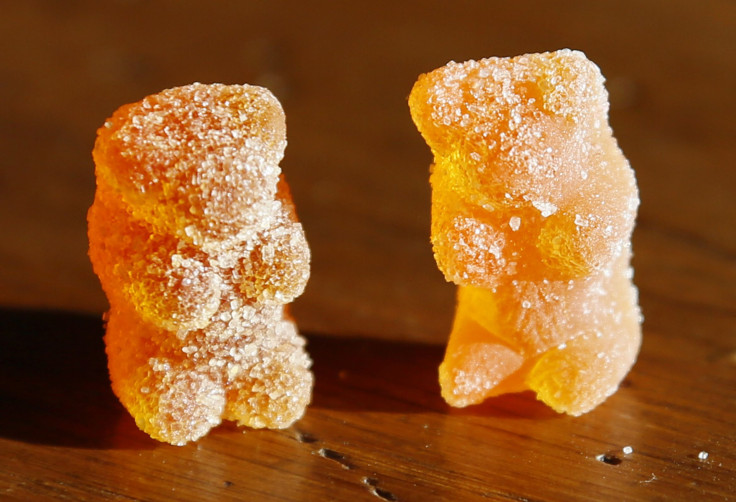Colorado Debates Ban On Edible Marijuana Products

Health authorities in Colorado are debating a ban on edible marijuana products, amid fears that children might accidentally consume them. But pot-infused food products such as candies, brownies and chocolate are a large and growing part of the marijuana industry and producers say the onus should fall not just on them, but on parents.
“We as adults have to wake up and smell the cannabis here,” says Cheryl Shuman, marijuana business expert and media director for the National Cannabis Chamber of Commerce. “It’s the parents' responsibility to keep any dangerous items out of reach of children.”
About a month ago, the Colorado Department of Public Health and Environment suggested that most edible pot products should be banned, but quickly retracted its statement. On Monday, authorities met to determine whether the state would require “premarket approval” on any foods or drinks that contain pot, according to the Associated Press.
The legal marijuana market is about 45 percent edibles, Dan Anglin, chairman of the Colorado Cannabis Chamber of Commerce, told the Denver Post.
Under Colorado state law, marijuana must be regulated “in a manner similar to alcohol,” which means that it’s illegal to distribute or sell pot to anyone under 21 years old and all buyers must show proof of age. It also requires that “marijuana sold in [Colorado] will be labeled and subject to additional regulations to ensure that consumers are informed and protected.”
Shuman said companies around the country are working to develop labeling standards for all products. She also advised that parents keep any cannabis products locked away from children.
“We strongly support cannabis-infused edibles in the market that are properly labeled,” said Shuman, a mother of two and executive director of the Moms for Marijuana International advocacy group. “The problems are not cannabis-infused edibles for patients, it’s the lack of proper parenting and oversight in our family homes.”
Many edible cannabis products, such as cookies, gummies and chocolates, can look similar or even identical to ordinary candy eaten by children and adults everywhere.
“Some of these products look so similar to candy that’s been on the market that we’ve eaten as children. There’s really no way for a child or a parent or anybody -- even an expert in the field -- to tell you whether or not a product is infused or not,” said Patrick Johnson, owner of the Denver-based Urban Dispensary, in a video published just before Halloween.
Some proposed solutions include mandating a unique color or shape for items that contain pot. But most in the industry agree that an outright ban is not the way to go.
“I honestly don’t believe that banning edible product lines is the way to go,” said Ata Gonzalez, CEO of G FarmaLabs, a marijuana product manufacturer based in Orange County, California. “A properly thought out plan as to how to handle this obstacle is.”
Colorado’s premarket approval would be similar to rules in Washington, where recreational marijuana is also legal and state law dictates that all products must be approved by the state Liquor Control Board.
Lawmakers will make their final decision next year.
© Copyright IBTimes 2024. All rights reserved.




















